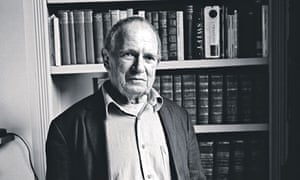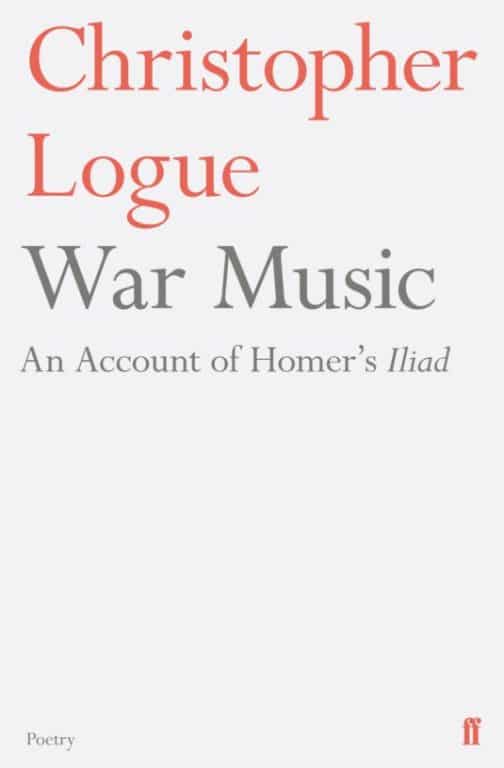
Christopher Logue’s War Music: An Account of Books 16-19 of Homer’s Iliad brought him great critical acclaim when it appeared in 1988. Kings: An Account of Books 1 to 2 of Homer’s Iliad was published in 1991 and was awarded the Bernard F. O’Connor Award by the Paris Review. The Husbands: An Account of Books 3 and 4, the third volume in the treatment of Homer’s Iliad, was published by Faber in 1994. Selected Poems by Christopher Logue was published in 1996 and his autobiography, Prince Charming, was published by Faber in 1999. Born in England, Logue served as a Private in the Black Watch and spent 16 months in an army prison. He worked in films, appeared in Ken Russell’s Dante’s Inferno and The Devils in addition to writing the screenplay for Russell’s Savage Messiah. He also appeared in John Irvin’s The Peasant’s Revolt. He published his first volume of poems in 1953 and has contributed his ‘True Stories’ column to Private Eye. His most recent volume, Cold Calls: War Music Continued, won the 2005 Whitbread award for poetry. In 2007, Logue was honoured by the Queen with a CBE (Commander of the Most Excellent Order of the British Empire) for his services to literature. Logue has also written for the theatre and cinema, and once penned a pornographic novel under the pseudonym Count Palmiro Vicarion.
Christopher Logue died on December 3, 2011, leaving his wife, biographer and critic Rosemary Hill. The Guardian offered this tribute to his colourful life and respected work.

Judges’ Citation
Christopher Logue is one of those all too rare poets whose ability to tell the story transforms each word of it to a freshness and a presence one had feared was lost.
Christopher Logue is one of those all too rare poets whose ability to tell the story transforms each word of it to a freshness and a presence one had feared was lost. What could be more intimidating than Homer’s great epic, the Iliad? Yet Logue’s War Music (which collects the first three volumes of his brilliant adaptation) ‘makes it new’ with all the vigor and invention the old recountings could no longer carry. If ‘translation’ is literally a ‘carrying over,’ then War Music is a vivid and reaffirming instance of its power. First and last, Logue is a poet whose own authority here is as timeless as his master’s.
Selected poems
by Christopher Logue
Ever since men began in time, time and
Time again they met in parliaments,
Where, in due turn, letting the next man speak,
With mouthfuls of soft air they tried to stop
Themselves from ravening their talking throats;
Hoping enunciated airs would fall
With verisimiltitude in different minds,
And bring some concord to those minds; only soft air
Between the hatred human animals
Monotonously bear towards themselves.
No work was more regarded in our times,
And nothing failed so often. Knowing this,
The army came to hear Achilles say;
‘Pax., Agamemnon.’ And Agamemnon’s: ‘Pax.’
Copyright © 2001